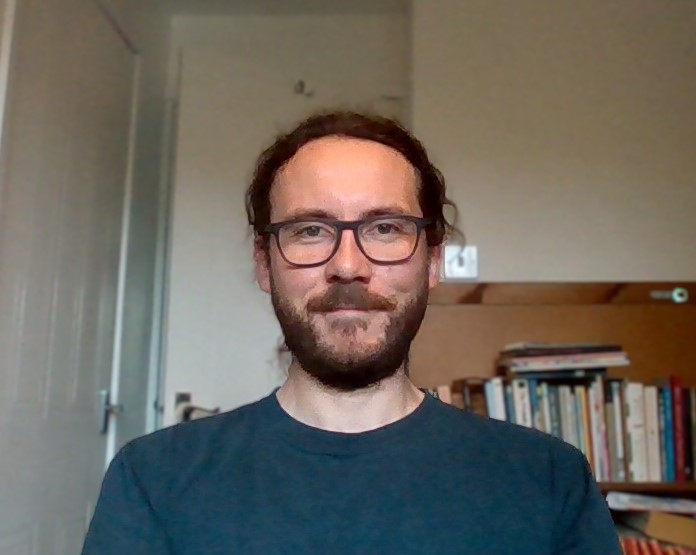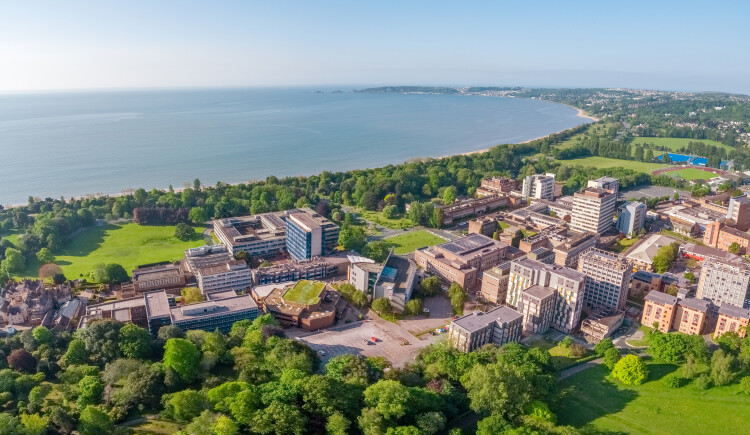The Philosophy Research Group supports excellence in philosophical research. We are active across a broad spectrum of areas, including theoretical philosophy (philosophy of mind, metaphysics, epistemology), practical philosophy (ethics, political philosophy), and applied philosophy (philosophy of medicine and psychiatry, philosophy of technology, philosophy of education). We are open and inclusive, welcoming participation from across disciplinary and institutional boundaries.
Philosophy Research Group (PRG)
- Criminology, Sociology and Social Policy
- Economics
- Education and Childhood Studies
- Politics, Philosophy and International Relations
- School of Social Sciences News
- Professional Accreditation
- StreetSnap Project
- Flip the Streets Project
- Research at the School of Social Sciences
- Centre for Applied Microeconomics
- Philosophy Research Group (PRG)
- Centre for Research in Macro-economics and Macro-finance (CReMMF)
- Centre for Social Change
- Global Security, Rights and Development (GSRD)
- Comparative Politics and Policy (CPP)
- Centre for Research into Practice (CenPrac)
- Global Drug Policy Observatory

The Philosophy Research Group supports excellence in philosophical research
Projects
We explore different types of affective experience (e.g. regret and self-esteem) and their role in various aspects of our life, including their ethical and interpersonal relevance. We are also interested in the relationship between emotions, self-experience and self-knowledge, and how personal identities are shaped and negotiated.
We examine varieties of philosophical realism and their implications for the methods of normative political philosophy.
We investigate different aspects of the phenomenology of health and illness, and questions within applied and medical ethics. We explore the role of emotions, moods, and narrative self-understanding in mental ill-health, and how wellbeing can be affected by specific practices and forms of interaction (e.g. through internet-enabled technology).
Events
11.04.2025 | Southwest Philosophy
Swansea University’s Philosophy Research Group (PRG) is delighted to announce a small event designed to bring together philosophers in the South of Wales and Southwest of England to celebrate the diversity and quality of the philosophy research taking place in this region. Please find details below. All are welcome.
Date: April 11th 2025
Location: Union House 301, Singleton Campus, Swansea, SA2 8PP
Speakers:
Dr Daisy Dixon (Cardiff University)
Dr Dan Degerman (Bristol University)
Dr Anna Bortolan (Swansea University)
Dr Rob Fraser (Swansea University)
Organiser: Rob Fraser (Swansea University)
Contact: r.k.fraser@swansea.ac.uk
Registration: https://philevents.org/event/show/134074
Programme:
1:00pm—1:15pm Arrival and refreshments
1:15pm—2:15pm Rob Fraser – “Conceptual and Logical Explanation: A Defence of Backing Realism”
In this talk, I sketch my preferred theory of explanation, according to which to explain is to provide information about objective relations of dependence, and I defend it against the charge that it cannot accommodate cases of conceptual and logical explanation. I agree that conceptual and logical relations bind their relata too tightly to do the work of dependence. However, such relations nevertheless facilitate the provision of a very general kind of information about dependence. By showing that two phenomena stand in a certain intimate conceptual or logical relation, we can show that they depend on the very same things. This is useful for explanatory purposes when it is easier to see what one of the related phenomena depends on. I close by exploring work that my analysis can do in the philosophy of time travel and the metaphysics of truth.
2:15pm—3:15pm Dan Degerman – “The medicalisation of silence”
This talk explores and problematises the medicalisation of silence. Scholars working within the growing, interdisciplinary field of silence studies warn that silence has been pathologised in Western culture. By this, they mean that silence is being reduced to a social, political, and ethical dysfunction resulting from resulting from injustice, rather than that it is being understood literally as an illness. In this talk, I want to suggest that the latter is occurring as well: silence is often understood as an illness subject to medical expertise and intervention. Using depression as a case study, I begin by showing that silence is treated both as a symptom and a cause of depression in mental healthcare. I then demonstrate that it is not just in healthcare that silence is being medicalised, but also in business management. A growing number of management researchers argue that employee silence may be both a risk factor for and a result of depression. Finally, I consider the potential implications of this. It is vital to recognise that the medicalisation of silence is not inherently problematic. However, in the blunt forms it tends to take, I will argue that it threatens to obscure the diverse and sometimes positive role of silence in human life.
3:15pm—3:30pm Comfort break
3:30pm—4:30pm: Anna Bortolan – “Pretending to Be Myself: On Concealing and Selfhood in the Experience of Anxiety”
Drawing on the notion of “camouflaging” and its characterisation within research on autism (e.g. Petrolini et al. 2023), this paper explores the role that attempts to conceal one’s experiences may have in the phenomenology of anxiety. I start by suggesting that actions associated with both the “masking” and “compensating” dimensions of camouflaging may be present in different forms of anxiety. I then proceed to argue that these actions may foster the person’s perceived ability to sustain their identity when some of its core aspects are seen as being threatened by anxious feelings, thoughts, and behaviours. I do so by drawing on an account of selfhood to which both affective and narrative processes are central, suggesting that, in some cases, actions associated with camouflaging can facilitate the experience of affects and the upholding of narratives that are self-constitutive.
4:30pm—5:30pm Daisy Dixon – “Aesthetic Slurs”
I present a novel account of what I call the ‘aesthetic slur’. Inspired by Patricia Hill Collins’s notion of ‘controlling images’, I will delineate images which behave in much the same way as slurs, analysing particularly their feature of ‘effluence’; how their harmful content can leak out and not be insulated by intention or context. I will then use this analysis to explain what went wrong with Makode Linde's controversial artwork Painful Cake (2012). Content warnings: showings of racist & antisemitic imagery.
01.04.2025 | Philosophy and Social Media: The Good, the Bad, and the Future
1 April 2025, 6.00pm - 7.30pm
Social media play a significant role in the life of many people. For example, through these platforms we can not only connect and stay in touch with each other, but also acquire information and learn new things, create communities, and organise in support of the causes we care about. However, the use of social media also raises significant challenges concerning, among others, the disclosure of personal information, fake news, exposure to hostility and abuse, and pressures on mental health.
This online event explores how philosophical ideas can help us to better understand and re-imagine social media use. In particular, through a conversation with philosophers with expertise in the ethics, epistemology, and lived experience of digital technology, we will discuss the potential benefits and drawbacks of engaging with these platforms, thinking also about how this could be transformed in the future.
Panel Members:
Dr Gen Eickers (University of Osnabrück)
Dr Joe Saunders (Durham University)
Dr Natalie Ashton (Vrije University Amsterdam)
Moderator:
Dr Anna Bortolan (Swansea University)
This event is organised by the Philosophy Research Group at Swansea University as a Local Partner of the Royal Institute of Philosophy and is open to the public.
Registration
The event will be held online as a Zoom Webinar. Attendance is free but registration is required. To register, please click on the following link:
https://swanseauniversity.zoom.us/webinar/register/WN_B9UOKmwhR--um4WBpnicbA
Information
For questions about the event, please contact the organiser, Anna Bortolan [anna.bortolan@swansea.ac.uk]
People
Director
Rob is the director of The Philosophy Research Group and a lecturer in philosophy at Swansea University. His areas of research expertise are metaphysics, epistemology, philosophy of language, and philosophy of mathematics.
Dr Rob Fraser
Staff and Student Members
Student Members:
Lucia Morgans
Kamila Kulik
Charles Clement
Academic Publications

Dr Anna Bortolan
| Title | Description |
|---|---|
|
Bortolan, A. 2023. Healing Online? Social Anxiety and Emotion Regulation in Pandemic Experience. Phenomenology and the Cognitive Sciences 22: 1195-1214. |
This paper explores how the experience of social anxiety and emotion regulation may be impacted upon by the use of internet-mediated communication fostered by the pandemic of Covid-19. |
|
Bortolan, A. 2022. Selves Hijacked: Affects and Personhood in 'Self-Illness Ambiguity'. Philosophical Explorations 25 (3): 343-362. |
This paper investigates from a phenomenological perspective the origins of self-illness ambiguity. Drawing on phenomenological theories of affectivity and selfhood, it argues that, as a phenomenon which concerns primarily the ‘personal self’, self-illness ambiguity is dependent on distinct alterations of affective background orientations. More specifically, it suggests that self-illness ambiguity originates in the presence of moods or existential feelings that are in tension with the ones that structure the person’s experience prior to the onset of the illness or when its symptoms are not experienced. |
|
Bortolan, A. 2021. Narrate It Until You Become It. Journal of the American Philosophical Association 7 (4): 474-493.
|
This paper provides an extended account of how the engagement with certain narratives can lead to a transformation of one's sense of possibility by eliciting affective experiences that are not consonant with the person's “existential feelings”. More precisely, it claims that, even when the experience of some types of emotion is generally precluded by a restricted sense of possibility, such emotions may be aroused by particular self-narratives, and it explores how this dynamic can give rise to enduring and wide-ranging affective changes. |
|
Bortolan, A. 2020. Affectivity and the Distinction Between Minimal and Narrative Self. Continental Philosophy Review 53: 67-84.
|
This paper discusses the claim that the minimal and narrative self complement each other but are fundamentally distinct dimensions. In particular, it challenges the idea that while the presence of a minimal self is a condition of possibility for the emergence of a narrative self, the dynamics which characterise narrative selfhood do not have a structuring effect on minimal self-experience. It does so by showing that at least certain forms of affective experience are complex phenomena in which minimal and narrative forms of selfhood are deeply entwined. |
Dr Gideon Calder
- Calder, G. 2024. Social exclusion and poverty. In G. Schweiger and C. Semak (eds.) The Routledge Handbook of Philosophy and Poverty. (Routledge)
- Sanghera, B. and Calder, G. (eds.) 2022. Ethics, Economy and Social Science: Dialogues with Andrew Sayer. Routledge.
- Cheshire-Allen, M. and Calder, G. 2022. No-one was clapping for us: Care, social justice and wellbeing during the Covid-19 pandemic in Wales. International Journal of Care and Caring, 6 (1-2): 49-66.
- Gheaus, A., Calder, G. and De Wispelaere, J. (eds.) 2018. The Routledge Handbook of the Philosophy of Childhood and Children. Routledge.
Dr Patrick Cockburn
- Cockburn , P. J. L. (under contract for 2026) Two Stories about Economic Life: An introduction to Normative Political Economy. Cambridge: Polity Press.
- Cockburn, P. J. L. & Preminger, J. 2023. Migration and Demos in the Democratic Firm: An Extension of the State-Firm Analogy. Political Theory, 51(3), 557-580.
- Cockburn, P.J.L. 2023. Varieties of Economic Dependence. European Journal of Political Theory 22(2),195-216.
Dr Leighton Evans
- Evans, L., Frith, J. and Saker, M. 2022. From Microverse to Metaverse: Modelling the Future through Today's Virtual Worlds. Emerald.
- Saker, M. and Evans, L. 2021. Intergenerational Locative Play: Augmenting Family. Emerald.
- Evans, L. 2018. The Re-Emergence of Virtual Reality. Routledge.
- Evans, L. and Saker, M. 2017. Location-based Social Media: Spatiality, Temporality and Identity. Palgrave Macmillan.
- Evans, L. 2015. Locative Social Media: Place in the Digital Age. Palgrave Macmillan.
Dr Rob Fraser
| Title | Description |
|---|---|
|
Fraser, R. 2022. No Grounds for Fictionalism. Philosophical Studies 179 (12): 3679-3687.
|
This paper argues that fictionalism about grounding is unmotivated, focusing on Naomi Thompson’s (2022) recent proposal that the utility of the grounding fiction lies in its facilitating communication about what metaphysically explains what. |
|
Fraser, R. 2021. Platonic Relations and Mathematical Explanations. Philosophical Quarterly 71 (3): 623-644. 2021.
|
Some scientific explanations appear to turn on pure mathematical claims. The enhanced indispensability argument appeals to these ‘mathematical explanations’ in support of mathematical platonism. I argue that the success of this argument rests on the claim that mathematical explanations locate pure mathematical facts on which their physical explananda depend, and that any account of mathematical explanation that supports this claim fails to provide an adequate understanding of mathematical explanation. |
|
Fraser, R. 2021. Unification and mathematical explanation. Philosophical Studies 178 (12): 3923-3943. 2021.
|
This paper evaluates the view that mathematical explanations in science explain by unifying. Illustrating with some novel examples, I argue that the view is misguided. For believers in mathematical explanations in science, my discussion rules out one way of spelling out how they work, bringing us one step closer to the right way. For non-believers, it contributes to a divide-and-conquer strategy for showing that there are no such explanations in science. My discussion also undermines the appeal to unifying power in support of the enhanced indispensability argument.
|
|
Fraser, R. and Saatsi, J. 2021. Mathematics and Explanatory Generality: Nothing but Cognitive Salience. Erkenntnis 86 (5): 1119-1137.
|
The paper makes progress in the debate surrounding the enhanced indispensability argument by drawing on a counterfactual theory of explanation, motivated independently of the debate, to provide a novel analysis of mathematics’ contribution to ‘explanatory generality’. Mathematics’ contribution is to make counterfactual information about physical dependencies easier to grasp and reason with for creatures like us. This gives precise content to key intuitions traded in the debate and adjudicates unambiguously in favour of the nominalist, at least as far as explanatory generality is concerned. |
Dr Paddy McQueen
- McQueen, P. 2024. Regret. Oxford University Press
- Magri, E. and McQueen, P. 2023. Critical Phenomenology: An Introduction. Polity Press
- McQueen, P. 2021. ‘Sexual Interactions and Sexual Infidelity’. Journal of Ethics, 25: 449-466
Latest News and Events

Philosophy Research Group Launch Event
In 2024, we celebrated the launch of the PRG by hosting a conference. The conference showcased the diversity of philosophical research conducted at Swansea and our connections with the broader philosophical community. Speakers included:
- Ian Kidd (University of Nottingham)
- Jane Gatley (Swansea University)
- Professor Fiona Woollard (University of Southampton)
- Rob Knowles (Swansea University)
Association for Social and Political Philosophy: Annual Conference
Since its inception, the Association has organised an annual conference. In 2024, the conference was organised by PRG members Dr Paddy McQueen and Dr Patrick Cockburn and took place at Swansea University. Speakers included:
- Tommy J. Curry (Edinburgh)
- Emily McTernan (UCL)
- David Owen (Southampton)
Awards and Grants

Dr Gideon Calder
- 2021 Health and Care Research Wales: £388,200, COVID-19 impact on the support and management of older people in Wales: The COSMO study.
- 2018 Welsh Government: £487,874, Evaluation of the Social Services and Well-Being (Wales) Act 2014.
Dr Leighton Evans
- 2023 Recipient of the Dillwyn Medal in Social Sciences, Business and Education from the Learned Society of Wales in recognition of research.
- 2023 Recipient of Swansea University Academy of Teaching and Learning Excellence in Teaching Award.
- 2023 - RIR1048 - 2022/23 - Arts and Humanities Research Council - UKRI IMPACT ACCELERATION ACCOUNTS. Game Changing Project. £40,502.99
- Rzsezewski, M. and Evans, L. (2019). Award of 586086 PLN (£116,000) for project Space-software-human: Augmented Reality of the Smart City from National Science Centre, Poland. 36 months from January 2020.
Contact Philosophy Research Group (PRG)
Contact our Director:
Dr Rob Fraser r.k.fraser@swansea.ac.uk
Interested in Postgraduate Research Programmes?
Discover a world of opportunity with our research programmes.
Explore our Postgraduate Research Programmes
